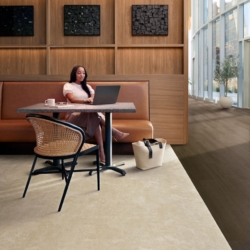To provide the best experiences, we use technologies like cookies to store and/or access device information. Consenting to these technologies will allow us to process data such as browsing behaviour or unique IDs on this site. Not consenting or withdrawing consent, may adversely affect certain features and functions.
The technical storage or access is strictly necessary for the legitimate purpose of enabling the use of a specific service explicitly requested by the subscriber or user, or for the sole purpose of carrying out the transmission of a communication over an electronic communications network.
The technical storage or access is necessary for the legitimate purpose of storing preferences that are not requested by the subscriber or user.
The technical storage or access that is used exclusively for statistical purposes.
The technical storage or access that is used exclusively for anonymous statistical purposes. Without a subpoena, voluntary compliance on the part of your Internet Service Provider, or additional records from a third party, information stored or retrieved for this purpose alone cannot usually be used to identify you.
The technical storage or access is required to create user profiles to send advertising, or to track the user on a website or across several websites for similar marketing purposes.
 One of the most familiar ways we measure time has its roots in a famous instance of daydreaming. The story goes that in 1583 a young student at the University of Pisa called Galileo Galilei was daydreaming in the pews while his fellow students were dutifully reciting their prayers. He noticed that one of the altar lamps was swaying back and forth and even as its energy dissipated, the arc of each swing slowed so that each took the same amount of time as the last, measured against his own pulse. (more…)
One of the most familiar ways we measure time has its roots in a famous instance of daydreaming. The story goes that in 1583 a young student at the University of Pisa called Galileo Galilei was daydreaming in the pews while his fellow students were dutifully reciting their prayers. He noticed that one of the altar lamps was swaying back and forth and even as its energy dissipated, the arc of each swing slowed so that each took the same amount of time as the last, measured against his own pulse. (more…)








 New research from
New research from 























July 17, 2024
Want a creative workplace? Make life difficult and chaotic for yourself
by Mark Eltringham • Comment, Workplace